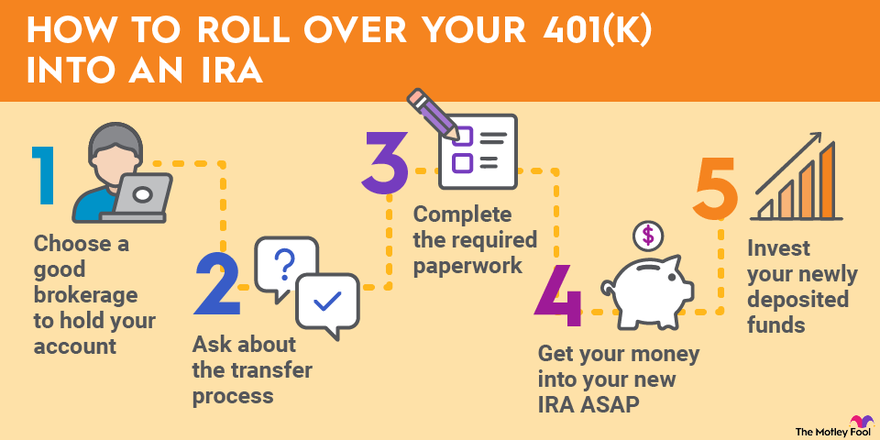You’ve just left your job. After years of saving into your 401(k), you might be wondering what to do next. Many people choose to roll their 401(k) into an IRA (Individual Retirement Account). This seems like the easy and smart thing to do—but is it always the best move?
Not always.
In fact, if you’re asking “what are the disadvantages of rolling over a 401k to an IRA?” you’re already on the right track. There are some serious risks and downsides that most people never consider—until it’s too late.
In this article, we’ll break down the key disadvantages of a 401(k) to IRA rollover and why you might want to think twice before making the move.
Let’s get started.
Quick Comparison: 401(k) vs. IRA Rollovers
| Feature | 401(k) (Keep) | IRA (Rollover) |
| Legal Protection | Strong federal protection | Weaker; depends on state laws |
| Access Before Age 59½ | Withdraw at 55 (if eligible) | Penalty if under 59½ |
| Investment Costs | Lower (institutional pricing) | Can be higher |
| Stable Value Funds | Available | Not available |
| NUA Tax Advantage on Stocks | Yes, can save big | No NUA advantage |
| Loan Option | Sometimes available | Not available |
| RMD Rules (Required Minimum Distributions) | Delay if still working | Must start at 73 |
- You Might Pay More in Fees
When you roll over a 401(k) into an IRA, your investment costs can go up. That’s because:
- Big company 401(k) plans usually get institutional pricing—which means lower fees.
- IRAs are individual accounts and may charge retail rates, which are higher.
This means more of your money could go to fees, and less could grow for your future.
- You Could Lose Big Tax Savings on Company Stock
Rolling over a 401(k) to an IRA may cost you more in taxes down the road if your plan features company stock that has appreciated.
Here’s why:
- When you transfer the stock to a brokerage account rather than to an IRA, the tax implications are that you pay tax on the original price of the stock purchased.
- Any gain (known as Net Unrealized Appreciation or NUA) will be taxed at a later date at capital gains rates, which are lower than the income tax.
- Roll it into an IRA though, and that tax break is lost. You will be subjected to income tax on the full value of money when you make a withdrawal on the IRA.
Example:
You bought company stock in your 401(k) for $10,000. Now it’s worth $50,000.
If you roll it to a brokerage account, you only pay income tax on $10,000, and later pay lower capital gains tax on the $40,000 growth.
- Less Legal Protection in an IRA
- Most lawsuits, creditors, and bankruptcy cannot place a claim to your 401(k) at the federal level (with exception to the IRS and child/spouse support).
- IRAs are not that safe. Every state has different regulations and you may not enjoy equal treatment.
- It could be safer to leave your money in a 401(k) in case you worry about being sued or being chased up a tree by a debt collector.
- You May Lose Early Access to Your Money
Here’s something many people don’t know:
- If you leave your job at age 55 or later, you can take money out of your 401(k) without penalty.
- But if you roll over to an IRA, you must wait until 59½—or pay a 10% early withdrawal penalty.
- This is a huge advantage for people who want to retire early or need access to their funds before turning 60.
Note: There are some exceptions with IRAs, like IRS Rule 72(t), but the rules are strict, and if you make a mistake, you’ll pay the penalty plus interest.
- No Access to Stable Value Funds
401(k) plans often include a special investment called a Stable Value Fund.
- These funds are safer than stocks.
- They pay more interest than regular money market funds.
- They are only available in workplace retirement plans.
You won’t find them in an IRA. So if you’re close to retirement and want low-risk income, this option disappears after a rollover.
Other Downsides of Rolling Over a 401(k) into an IRA
- None to lend: You may borrow against some 401(k) plans. With IRA it is not possible.
- Required Minimum Distributions (RMDs): You have an RMD that is due on your IRA at age 73. However, in case you are still employed and possess a 401(k), then there is a possibility to postpone the RMDs.
- Complex transfer: Certain 401(k) platforms may charge exit fees or create a tedious, mind-boggling procedure for transfer.
Key Disadvantages of 401(k) to IRA Rollover
| Disadvantage | Why It Matters |
| Loss of Early Withdrawal at 55 | Must wait until 59½ with an IRA |
| Weaker Legal Protection | IRAs aren’t as protected from lawsuits |
| No Stable Value Funds | Only available in 401(k) plans |
| Higher Potential Fees | IRA fees may be more than 401(k) institutional rates |
| Lose NUA Tax Break on Company Stock | Higher taxes when selling appreciated stock |
| No Loan Option | You can’t borrow from an IRA like some 401(k)s |
Final Thoughts
Your retirement money is one of your biggest financial assets. Before moving it, make sure you understand the risks.
The conversion to an IRA might be a fantastic idea but might turn out to be more costly in terms of taxes or fees or the benefits forgone, unless planned adequately.
You should never under any circumstances make large decisions about your retirement accounts without talking to a financial advisor or other tax professional.
Also Read About :- Dermatologist Salary
